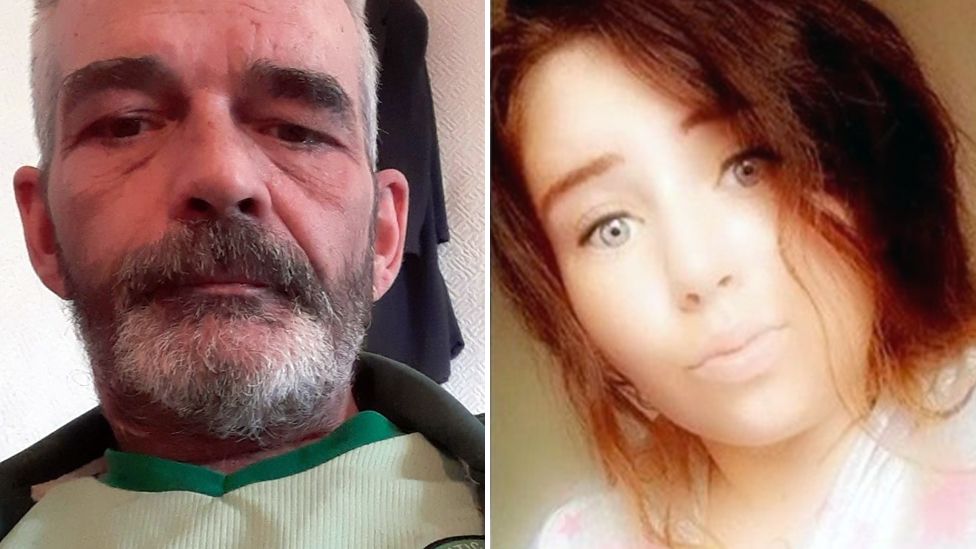
John Paul Duffy and Emma Baillie were murdered by Peter Duffy in Coatbridge
The stepmother of a woman murdered by her abusive partner has said he should never been out on bail and free to kill her.
Emma Baillie was strangled and repeatedly struck with a knife by Peter Duffy at his home in Coatbridge.
Duffy, 48, also killed his brother John Paul, 51, in a separate attack while subject to three bail orders.
One of the orders involved not approaching Ms Baillie, who was 26 when she died.
Duffy was sentenced to a minimum of 30 years in prison last week and warned by a judge that he may never be released.
But Ms Baillie’s stepmother Carol Austin told the BBC’s Good Morning Scotland programme she could not understand why Duffy was previously allowed bail.
She said: “It is very worrying to know there are serious criminals walking the streets when they should be behind bars at the time of their arrest.
“This is not an attack on the police or the Crown in any way. There are fundamental issues with the law.”
Ms Austin is not the first bereaved family member to criticise bail decisions for offenders that have killed after their release.
Last month the BBC reported how social services raised concerns about Christopher McGowan weeks before he was deemed fit for bail and went on to murder his girlfriend.
‘Risk of further abuse’
Image source, Police Scotland
Peter Duffy must serve at least 20 years of a life sentence
Duffy meanwhile was found guilty of committing both murders between between 4 March and 12 April 2022.
The High Court in Glasgow had heard how a risk assessment had been carried out on him prior to the attacks.
Ms Austin said: “It’s just very shocking that someone as dangerous as that was able to walk away.
“They had found Emma to be at risk of further abuse and in fear of her life.
“Yet even after that assessment, Peter Duffy was still able to be bailed.
“The case the police put together to convict Peter Duffy was amazing but the fact that he was able to commit the crime is what concerns us.”
‘No alarm was raised’
Duffy killed Ms Baillie before she was due to appear in court as a witness against him on a charge of assault.
Her family say attempts should have been made to trace her when she failed to turn up at court – 12 days after she had been murdered.
Carol Austin said: “When she failed to appear in court, no alarm was raised and no check was made on her.
“Equal effort should be put into finding the victim if they don’t appear in court as finding the attacker.”
A spokesman for the Crown Office and Procurator Fiscal Service said bail decisions were a matter for the courts.
But he pointed out that bail had been opposed and Duffy had been issued with conditions in a bid to protect Ms Baillie.








